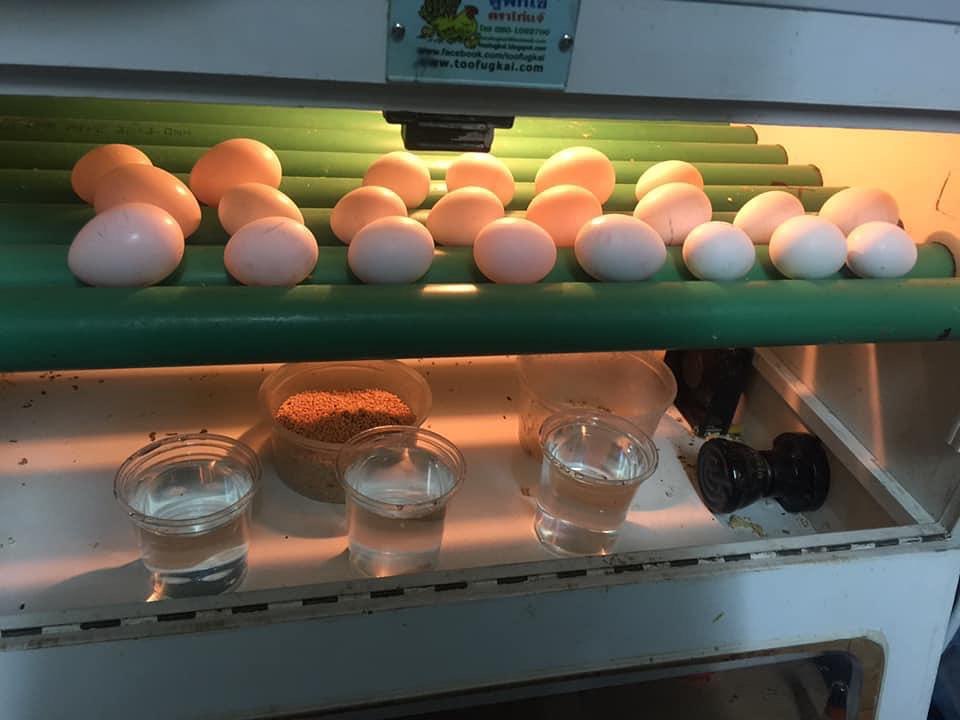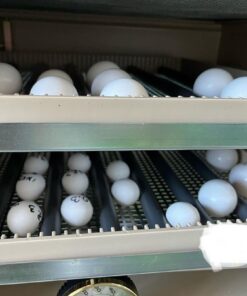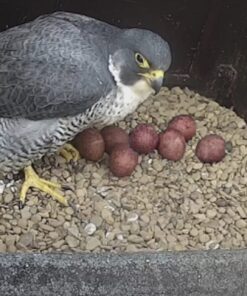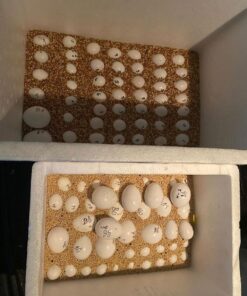Indian Ringnecked Parakeet Parrot eggs
$65.00
The Complete Guide to Indian Ringnecked Parakeet Parrot Eggs
Indian Ringnecked Parakeets are captivating birds known for their vibrant colors, intelligence, and strong vocal abilities. If you’re a bird enthusiast or a breeder, understanding their reproductive process, particularly their eggs, is crucial. In this comprehensive guide, we will explore everything you need to know about Indian Ringnecked Parakeet parrot eggs, from laying to hatching, and beyond.
Table of Contents
- Introduction to Indian Ringnecked Parakeets
- Breeding Season and Behavior
- Choosing a Mate
- Nesting Habits
- Understanding Indian Ringnecked Parakeet Parrot eggs
- Characteristics of Indian Ringnecked Parakeet Parrot eggs
- Factors Affecting Egg Health
- Incubation Process
- Natural Incubation by the Parents
- Artificial Incubation: What You Need to Know
- Hatching: The Critical Stage
- Signs of Healthy Hatching
- Common Hatching Problems
- Caring for the Chicks
- Feeding the Hatchlings
- Monitoring Growth and Development
- Preventing and Handling Egg Binding
- Signs of Egg Binding
- Treatment and Prevention
- Fertility Issues: Causes and Solutions
- Diagnosing Fertility Problems
- Enhancing Breeding Success
- The Role of Diet in Egg Production
- Essential Nutrients for Breeding Parakeets
- Supplementation for Egg Health
- Buying Indian Ringnecked Parakeet Eggs: What to Consider
- Where to Buy Parrot Eggs for Sale
- Ensuring Egg Viability and Authenticity
- Ethical Considerations in Breeding
- Responsible Breeding Practices
- Legal Implications
- Conclusion
- FAQs
Description
Introduction toIndian Ringnecked Parakeet Parrot eggs
Indian Ringnecked Parakeets (Psittacula krameri) are popular pets due to their striking appearance and ability to mimic human speech. Native to Asia, particularly India and Sri Lanka, these medium-sized parrots have become beloved members of many households around the world.
Breeding Season and Behavior
Breeding Indian Ringnecked Parakeets can be a rewarding experience, but it requires patience and knowledge.
Choosing a Mate
Before breeding, it’s important to ensure that both birds are mature and compatible. Pairing should be done carefully to avoid aggressive behaviors, as Indian Ringnecks can be territorial.
Nesting Habits
These parrots prefer nesting in hollow trees in the wild, but in captivity, they require a well-designed nesting box. The box should be placed in a quiet area to encourage breeding.
Understanding Parrot Indian Ringnecked Parakeet Parrot eggs
Indian Ringnecked Parakeet eggs are small, white, and oval-shaped.
Characteristics of Indian Ringnecked Parakeet Parrot eggs
- Size: Typically around 2.5 cm in length.
- Color: Pure white.
- Texture: Smooth and slightly glossy.
Factors Affecting Egg Health
Several factors can impact the health of the Indian Ringnecked Parakeet Parrot eggs, including the diet of the parents, environmental conditions, and genetics.
Incubation Process
The incubation process is a critical stage in the development of the Indian Ringnecked Parakeet Parrot eggs.
Natural Incubation by the Parents
In most cases, the female parakeet will incubate the Indian Ringnecked Parakeet Parrot eggs for about 23-24 days. The male usually assists by feeding the female and guarding the nest.
Artificial Incubation: What You Need to Know
If you’re considering artificial incubation, you’ll need an incubator that can maintain a consistent temperature and humidity. This method is often used by breeders who want to ensure higher hatch rates.
Hatching: The Critical Stage
After the incubation period, the eggs will begin to hatch. This is a delicate process that requires careful monitoring.
Signs of Healthy Hatching
- Movement: The chick will start moving inside the egg.
- Pipping: The chick will create a small hole in the shell, known as “pipping.”
- Hatching: Within 24-48 hours after pipping, the chick should fully emerge from the egg.
Common Hatching Problems
- Failure to Pip: Sometimes, chicks fail to break through the shell, which can be fatal.
- Weak Chicks: Chicks that struggle to hatch may be weak or have developmental issues.
Caring for the Chicks
Once the chicks have hatched, they require immediate care.
Feeding the Hatchlings
For the first few weeks, the chicks should be fed a specialized formula. Parent birds typically feed their chicks, but if you’re hand-rearing, you’ll need to replicate this feeding schedule.
Monitoring Growth and Development
Regularly weigh the chicks to ensure they are growing at a healthy rate. Any significant deviations in weight could indicate health issues.
Preventing and Handling Egg Binding
Egg binding is a serious condition that can occur in female parakeets.
Signs of Egg Binding
- Swelling: Visible swelling in the abdomen.
- Lethargy: The bird may appear weak or inactive.
- Straining: Difficulty passing the egg.
Treatment and Prevention
If you suspect egg binding, immediate veterinary care is essential. Preventive measures include a balanced diet and proper calcium supplementation.
Fertility Issues: Causes and Solutions
Fertility issues can arise in Indian Ringnecked Parakeets due to various factors.
Diagnosing Fertility Problems
- Infertile Indian Ringnecked Parakeet Parrot eggs: Candling the eggs can help determine if they are fertile.
- Breeding Pair Compatibility: Incompatible pairs may fail to produce fertile eggs.
Enhancing Breeding Success
Improving diet, providing a stress-free environment, and ensuring the birds are at the right age for breeding can increase the chances of successful egg fertilization.
The Role of Diet in Egg Production
A balanced diet is crucial for healthy egg production.
Essential Nutrients for Breeding Parakeets
- Calcium: Essential for strong eggshells.
- Protein: Supports the development of the embryo.
- Vitamins: Particularly Vitamin D3 for calcium absorption.
Supplementation for Egg Health
Consider adding a cuttlebone or mineral block to the cage to ensure the birds receive adequate calcium. Pelleted diets can also provide balanced nutrition.
Buying Indian Ringnecked Parakeet Parrot eggs: What to Consider
If you’re interested in buying Indian Ringnecked Parakeet eggs, it’s essential to be informed.
Where to Buy Indian Ringnecked Parakeet Parrot eggs for Sale
Look for reputable breeders who have a proven track record of selling viable eggs. Online platforms often offer parrot eggs for sale, but make sure to research the seller thoroughly.
Ensuring Indian Ringnecked Parakeet Parrot eggs Viability and Authenticity
When purchasing eggs, ask for details on the breeding pair, the incubation process, and the expected hatch date. It’s also wise to request photos or videos to verify the authenticity of the eggs.
Ethical Considerations in Breeding
Breeding parakeets comes with ethical responsibilities.
Responsible Breeding Practices
Only breed parakeets that are healthy and free from genetic issues. Avoid overbreeding and ensure that there is a demand for the chicks before breeding.
Legal Implications
Make sure to check local laws regarding the breeding and selling of parrots. In some areas, permits may be required.
Conclusion
Breeding Indian Ringnecked Parakeets and caring for their eggs can be a fulfilling experience. With proper knowledge and care, you can successfully raise these beautiful birds from eggs to adulthood. Whether you’re a hobbyist or a professional breeder, understanding the intricacies of parrot eggs is key to a successful breeding program.
FAQs
- How long does it take for Indian Ringnecked Parakeet eggs to hatch?
- Typically, it takes about 23-24 days for the eggs to hatch.
- Can I buy Indian Ringnecked Parakeet eggs online?
- Yes, but ensure you purchase from reputable sources to guarantee the eggs’ viability.
- What should I feed Indian Ringneck chicks?
- Hatchlings require a specialized formula that mimics the nutrition provided by parent birds.
- What are the signs of a fertile egg?
- Candling the egg can reveal signs of fertility, such as visible veins or movement inside the egg.
- How can I prevent egg binding in my parakeet?
- Providing a balanced diet with sufficient calcium can help prevent egg binding.





Franklin Goldermann –
Can I use Joomla to update a purely HTML coded website (I mean a website that is not designed using Joomla) ?
https://www.vingle.net/posts/6101297
Elvis –
Heey there arre using Wofdpress foor your site platform?
I’m new tto thee blog world butt I’m tryijng to get starte and
creeate myy own. Do you nesd any html codeing knowledge too make yourr own blog?
Any help woluld bbe greatly appreciated!
Here iis mmy webb blog whichav